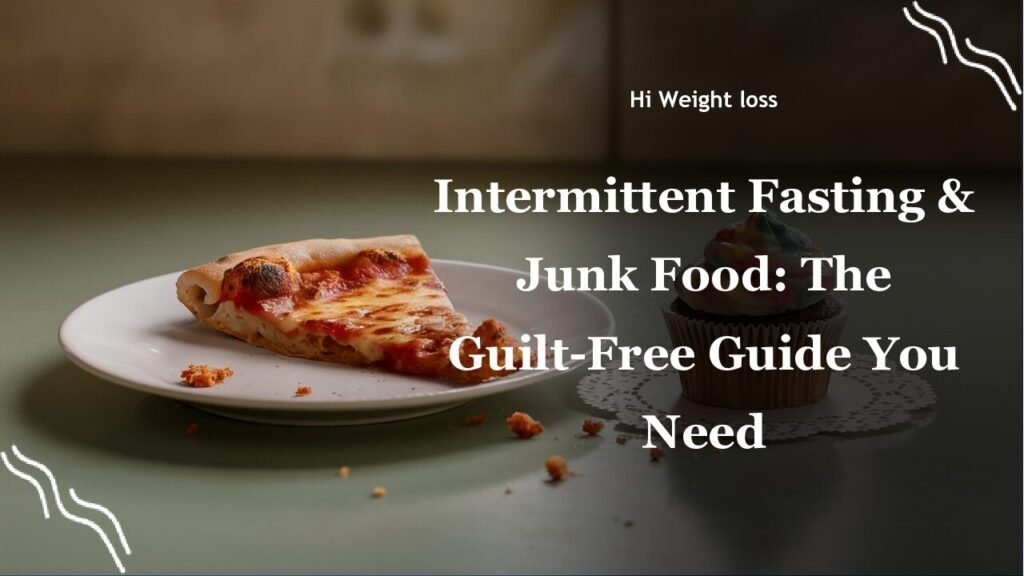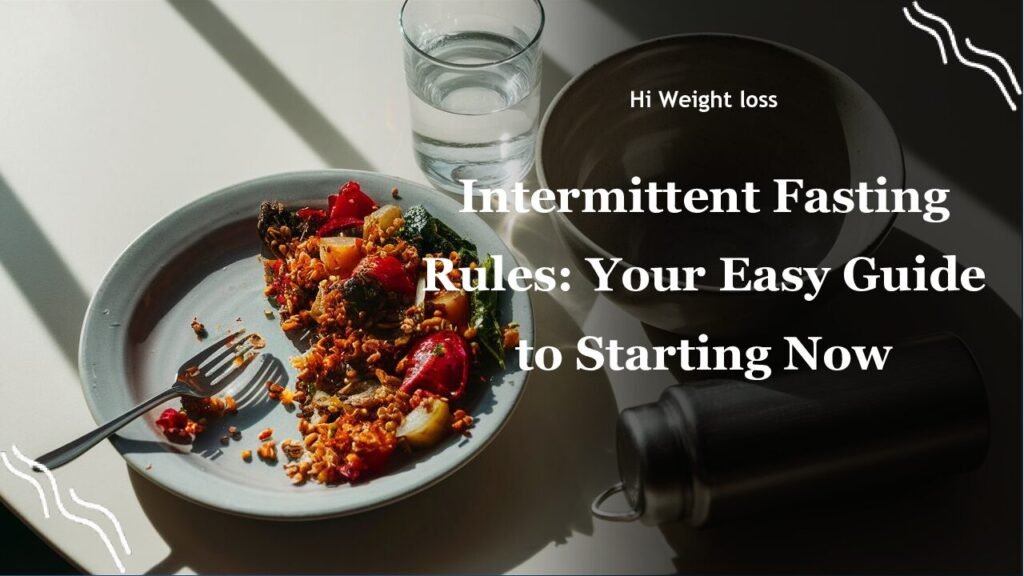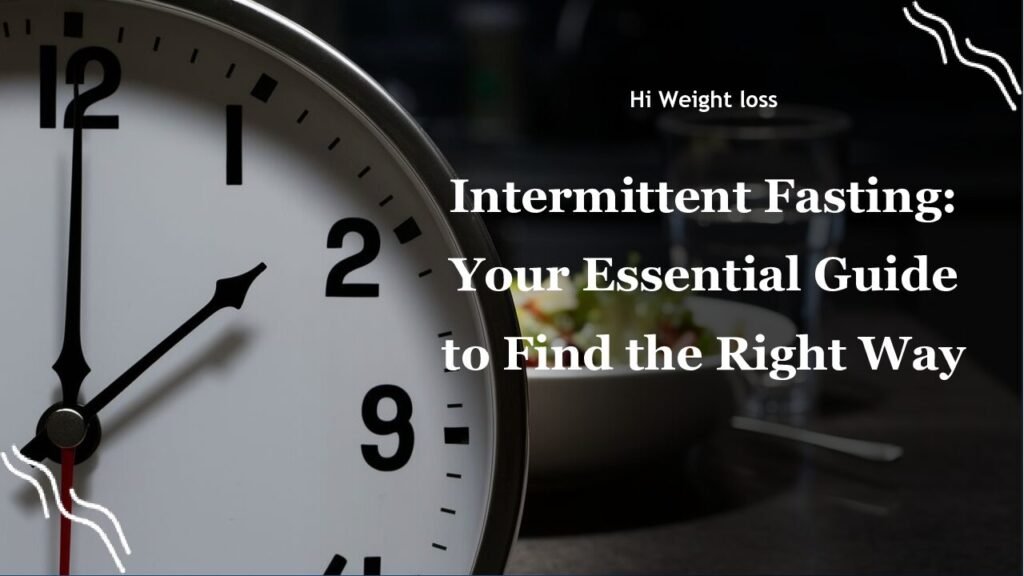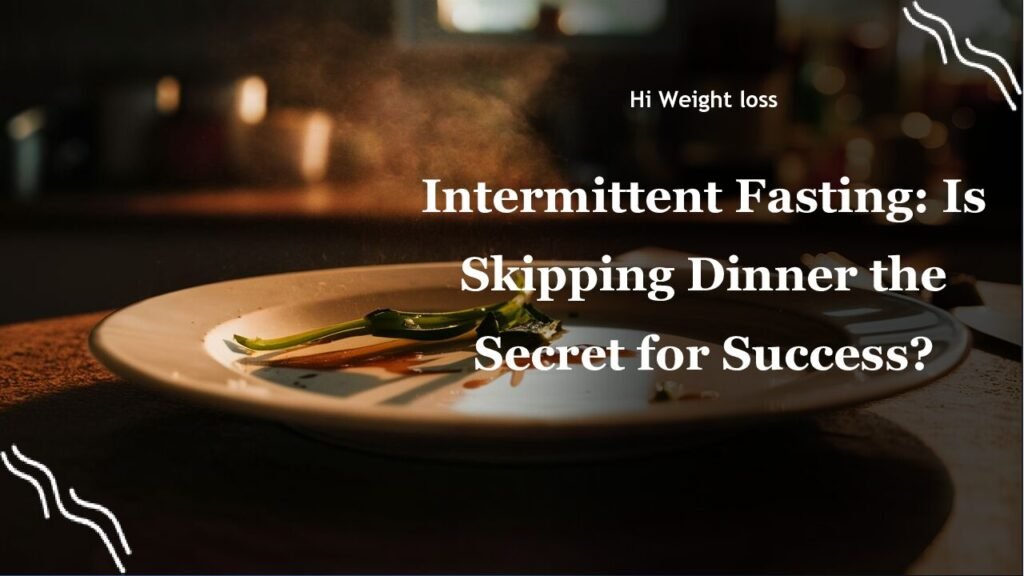Do you ever feel like you’re trapped in a cycle of strict dieting, only to crave that greasy pizza or a sugary treat? It’s a common struggle, especially when you’re trying intermittent fasting. It feels like you’re constantly battling the urge to indulge, and the question “Can I eat junk during intermittent fasting?” pops into your mind. Well, you’re not alone! This article will dive into the truth about enjoying treats while still achieving your health goals through intermittent fasting, providing some personal experiences and clear, actionable advice to help you find balance.
Can I Eat Junk During Intermittent Fasting? The Truth Revealed
The Allure of Junk Food While Fasting
Let’s be honest, that slice of pizza or a handful of chips can be incredibly tempting. It’s especially true when you’re restricting your eating hours. I remember when I first started intermittent fasting, the cravings were intense. It felt like my body was screaming for all the foods I was trying to avoid. So, can you eat these during your eating window? The short answer is yes, but there’s a bit more to it.
The Calorie Deficit Principle
Here’s the deal: weight loss primarily boils down to consuming fewer calories than you burn. This is what is known as a caloric deficit. Even if you enjoy a slice of pizza or some fast food, the calorie intake has to be lower than what you’re burning daily, and you can achieve your weight loss goals. Think of it like this, if your body is burning 2000 calories per day, and your diet has a daily intake of only 1800 calories, it is easier for you to lose weight.
My friend Sarah once told me she lost weight while including a “treat meal” once a week, as long as she kept the rest of her diet clean and kept within her calorie budget. This approach made her diet sustainable and she was not overly frustrated.

Nutritional Balance: The Key to Health
While calories are vital, nutritional balance is equally essential. Your body needs a mix of healthy fats, carbohydrates, proteins, vitamins, and minerals to thrive. According to the research, “it is recommended to plan your meals with a variety of nutritious foods from all food groups to ensure your body gets the necessary nutrients”1.
A balanced diet will improve your overall health and well-being and can prevent deficiencies. That’s not to say you can’t have junk food; however, it shouldn’t make up the majority of your diet. For example, I’ve tried to ensure that my diet is primarily filled with nutrient-rich meals, and I only occasionally consume junk food.
Moderation is Crucial
The key here is moderation. According to ifitzone.ca, “occasional indulgence in junk food like pizza or cupcakes is acceptable if you are mindful of your overall calorie intake and nutritional balance”4. If you’re following intermittent fasting, it’s fine to have a slice of pizza or some fast food during your eating window every now and then. It’s all about balance.
My uncle once went on a very restrictive diet, totally cutting out all the foods he liked. After a few weeks, he felt so deprived that he binged on a lot of junk food. Moderation and balance are important if you want to ensure that you stick to your diet over a longer period.
Navigating Cravings
Cravings can feel overwhelming, especially during fasting hours. Here are some tips that might help you manage your cravings:
- Hydrate: Often, thirst can be mistaken for hunger. Drinking plenty of water can help.
- Eat More Protein: Protein-rich foods can keep you full longer.
- Mindful Eating: When you do indulge, eat slowly and savor each bite, reducing the likelihood of overeating.
- Plan Ahead: Plan your meals ahead of time so you are not thinking of what you are going to eat during your eating window.
- Listen to Your Body: Sometimes, you might crave specific foods because your body needs certain nutrients. For example, if you are constantly craving salt, you may need electrolytes.
What About Fast Food?
The question of consuming fast food comes up often when people practice intermittent fasting. The same rule of moderation applies. You can have fast food like burgers and fries, but doing so frequently is not recommended due to the high amount of calories, unhealthy fats and sugars.
I have a friend who enjoys a burger and fries on the weekend, but ensures that she is eating healthy food during the week. This strategy allows her to enjoy her favorite meal without derailing her healthy eating habits.
Pizza During Intermittent Fasting?
Yes, you can have pizza during intermittent fasting. Again, moderation is key. A slice or two can fit within your calorie goals if you plan accordingly. However, if you eat the whole pizza frequently, your weight loss goals will likely not be met. It’s all about making informed choices and understanding the impact on your overall health and diet.
I’ve found that having a small slice of pizza with a large side salad is a good way to balance a craving with nutrition.
Understanding the Risks of Unhealthy Eating
It’s vital to recognize that regularly consuming a lot of junk food, even within your eating window, can hinder your health progress. High levels of processed foods can lead to nutrient deficiencies, energy slumps, and a higher risk of health problems.
My sister used to rely on fast food all the time. She initially lost weight but her energy levels decreased and she started feeling unwell. She eventually switched to a diet that included more nutrient-rich foods.
Planning Your Meals Effectively
Planning your meals is crucial for success with intermittent fasting. Here’s how you can plan for treats without going off track:
- Set a “Treat” Day: Plan for a treat meal once or twice a week to satisfy cravings, as my friend Sarah did.
- Track Your Calories: Keep a food diary or use an app to monitor your calorie intake, helping you stay within your limits.
- Prioritize Nutrients: Build your main meals around nutrient-dense foods, so there’s less room for less healthy options.
- Read Labels: Be aware of the calorie and nutritional content of the foods you’re eating.
Tracking Your Progress
Monitoring your progress is another important aspect of your fasting journey. Check your weight, take photos, and pay attention to how you feel, not just how much you weigh. These benchmarks will help you to stay motivated and allow you to adjust your diet as necessary.
Intermittent Fasting and Junk Food: A Balanced Approach
The key takeaway is that intermittent fasting can include some of the foods you love, such as junk food. You can enjoy treats occasionally without completely abandoning your health goals. But it requires a balanced approach that emphasizes a calorie deficit and a nutrient-rich diet. Don’t deprive yourself of all of your favourite foods, but try to make sure that most of your diet consists of healthy foods.
Remember, health is a journey, not a destination. It’s all about progress, not perfection.
| Principle | Description |
|---|---|
| Calorie Deficit | To lose weight, your daily calorie intake must be lower than your body’s daily energy expenditure. This is important even if you are eating junk food. |
| Nutritional Balance | Make sure to include a variety of nutrient-dense foods such as healthy fats, carbohydrates, proteins, vitamins, and minerals in your diet. |
| Moderation | Junk food can be included occasionally in your diet. However, it should not be the primary food group in your daily meal plan. |
| Planning | Plan your meals in advance and this can allow you to enjoy treats without derailing your health goals. |
Conclusion
Ultimately, the question “Can I eat junk during intermittent fasting?” doesn’t have a simple yes or no answer. The key is to find a balance that works for you, allowing for occasional indulgences while prioritizing your overall health. Just as my friend Sarah was able to incorporate treats into her weekly routine while losing weight, you too can enjoy junk food in moderation. Remember to focus on a balanced diet rich in nutrients and be mindful of your total calorie intake. This way, you can enjoy the occasional pizza or cupcake while still achieving your weight loss goals. Why not start by planning your next meal to include both healthy foods and an occasional treat? Your body will thank you for it!
FAQ
Can I lose weight while eating junk food on intermittent fasting?
Yes, you can still lose weight if your overall calorie intake is lower than your calorie expenditure, even if you include some junk food. However, it’s essential to balance it with nutrient-rich foods for overall health.
How often can I eat junk food while intermittent fasting?
It’s best to limit junk food to occasional treats, perhaps once or twice a week. Focus on eating mostly nutritious foods to meet your body’s needs.
Will eating junk food derail my intermittent fasting results?
Occasional junk food consumption is unlikely to derail your progress as long as you stay within your calorie goals and eat a balanced diet. However, frequent consumption of unhealthy foods will likely reduce the effectiveness of your intermittent fasting efforts.
Can I have pizza during intermittent fasting?
Yes, you can have pizza in moderation. One or two slices can fit within your daily calorie limits, but it should not be your primary food source.
What is the best way to balance junk food with intermittent fasting?
Plan ahead for occasional treats, track your calories, prioritize nutrient-rich foods, and ensure that the majority of your diet comes from healthy, balanced meals.



